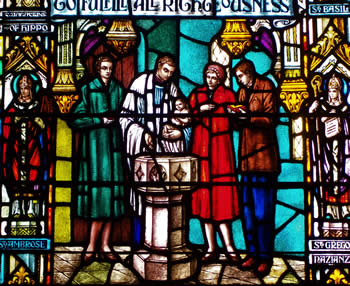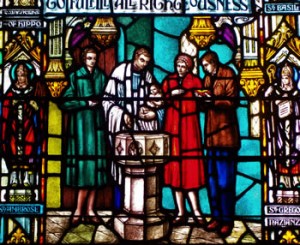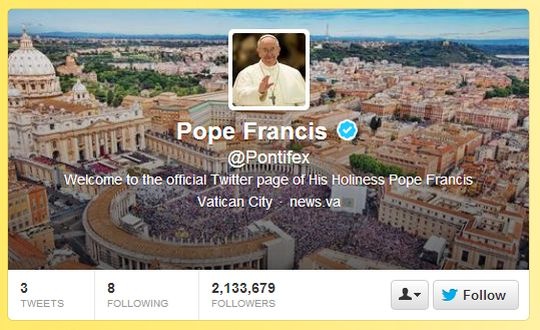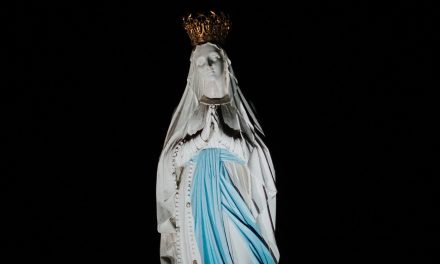This week’s entry in the series is by guest poster Dr. Kelly Johnson, who teaches in the Religious Studies department at the University of Dayton and wrote The Fear of Beggars: Stewardship and Poverty in Christian Ethics, published by Eerdmans Press.
I was raised Catholic. The smell of wax and dust and whatever industrial cleaning fluid every Catholic parish seems to use is closely tied to my earliest encounters with stillness and beauty as well as to my childhood observations about the mysterious lives of grown-ups. In my childhood, Catholicism meant morning light falling across a statue of Mary, a crucifix, and an aesthetically-lacking painting of the stoning of St. Stephen. My role models, women who spoke about the presence of Christ in the Blessed Sacrament in the same tone that they spoke about weather, as a fact of life, would stand in that quiet repeating, “Lamb of God…” With common-sense reverence, the sacristan would gather up the altar cloths for the laundry while the others made plans for a parish carnival or a layette or a meal to follow a funeral. They would be back for daily mass again tomorrow. Those ladies at the morning mass beat the steady background rhythm of all my childhood days.
The Catholic Church is my mother. Given that, it’s no surprise that my relationship to the Church was always about both tenderness and conflict. I argued with the Church about the same things I heard so many other Catholics arguing about. Could artificial birth control have some place in a good marriage, or would permitting that open the floodgates on sexual immorality? Were women who wanted to be ordained misguided or were they really called? And shouldn’t Father’s homilies be shorter (or livelier or less political or more scriptural or…)?
These are family arguments. The pain and bitterness in them arises because they are fights we have with our mother, our dear, beloved mother.
From this perspective, Protestantism was a sort of “other woman,” raising children of my father in a different household. I had a feel for this tension long before I could define it. Protestants were step-siblings who claimed they knew my father better than my mother did. Were they family or traitors? Could my father really love them, too? I was fascinated by them. I was jealous of them. I pitied them.
My own “cradle” was in the late 1960s and 1970s in east Tennessee. Generations of Catholics in the past fifty years have lived through different Catholicisms in their childhood and might describe some quite different versions of “Cradle Catholicism.“ But what those raised as Catholics share is that for us, Catholicism is, among other things, about the world discovered in childhood , which is to say about what is given, or even, in a sense, what is natural. Church is mother. If her family is somewhat dysfunctional, that makes it no less a family. In fact, we might suspect that a community in which no one was angry or burdened with old hurts was not really a family at all but only an idea, a cheap imitation of the painful and difficult real thing.
If being raised Catholic gave me a particularly tactile sense of the Church as a world given and inhabited rather than chosen, it also left me hungry for something stranger and wilder. My earliest attempt to explain the difference between my nuclear family’s Catholicism and the Protestantism my best friend (as well as my grandmother, aunts, and cousins) practiced was that they said “Jesus,” while we said “Christ.” The savior was, for me, present in a sacrament, encountered in mass, in the midst of parish life. For my best friend, he was an unpredictable preacher and miracle worker from long ago who was coming back some fine day to end this world and bring a new one. My Christ seemed tame by comparison with her Jesus. My need to understand that difference is, no doubt, one of the reasons I became a theologian. Later, when I nearly gave up on Catholicism, it was some Protestant friends who energized my sacramental memories and struggles with church authority by marrying them to the bracing words of the gospel and the strange and lovely person of Jesus himself.
Protestants who enter into full communion with the Catholic Church are then really Catholics, and their conviction about and knowledge of doctrine, as has often been noted, may be sharper than that of most cradle Catholics, because they had to choose it. Many cradle Catholics envy that clarity. But we also mistrust it as not quite in tune with inhabiting that large and layered Catholic world we grew up in. We may find that new Catholics, free of memory and all the baggage of anger and grief that builds up among those who are Catholics since childhood, simply do not see the Church as we do. It may be that they are still in the honeymoon and can learn from those of us who are more seasoned; it may also be that they can appreciate our mother as we, who have taken her for granted all our lives, do not.






You have expressed well what my own experience has been as a so-called cradle Catholic. My cradle was 50s and 60s, though. So the issues you struggled with happened when I was older.